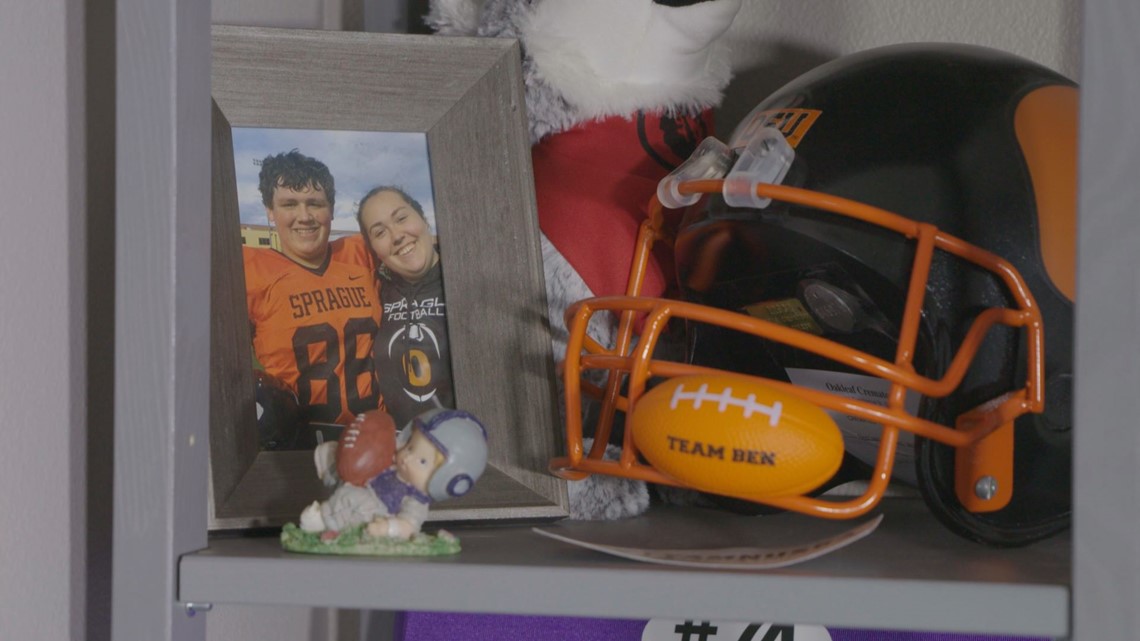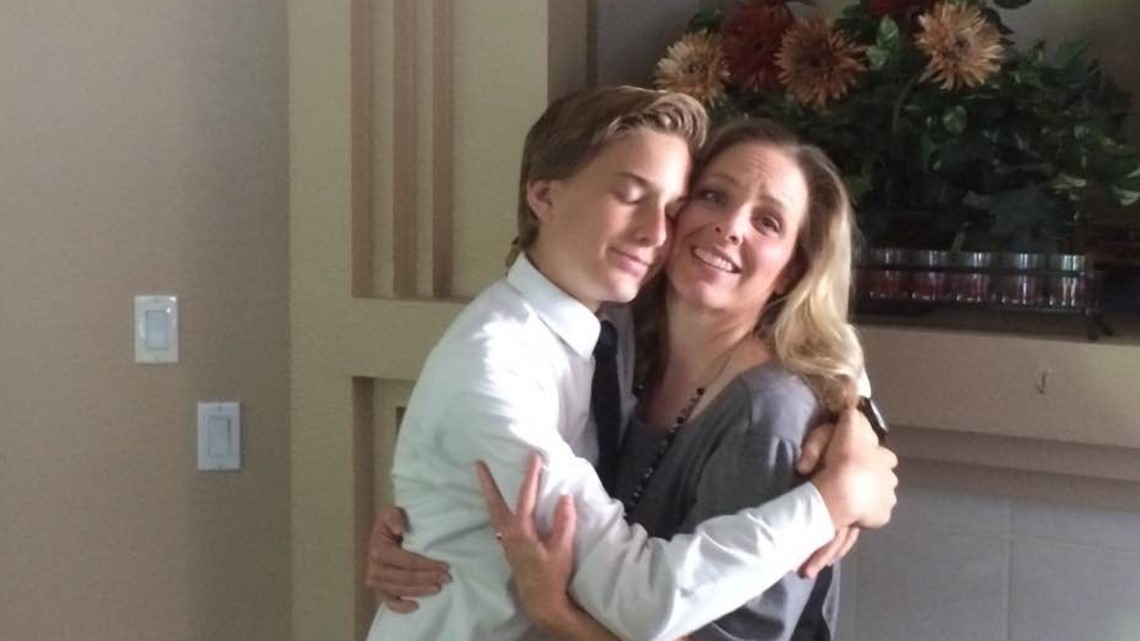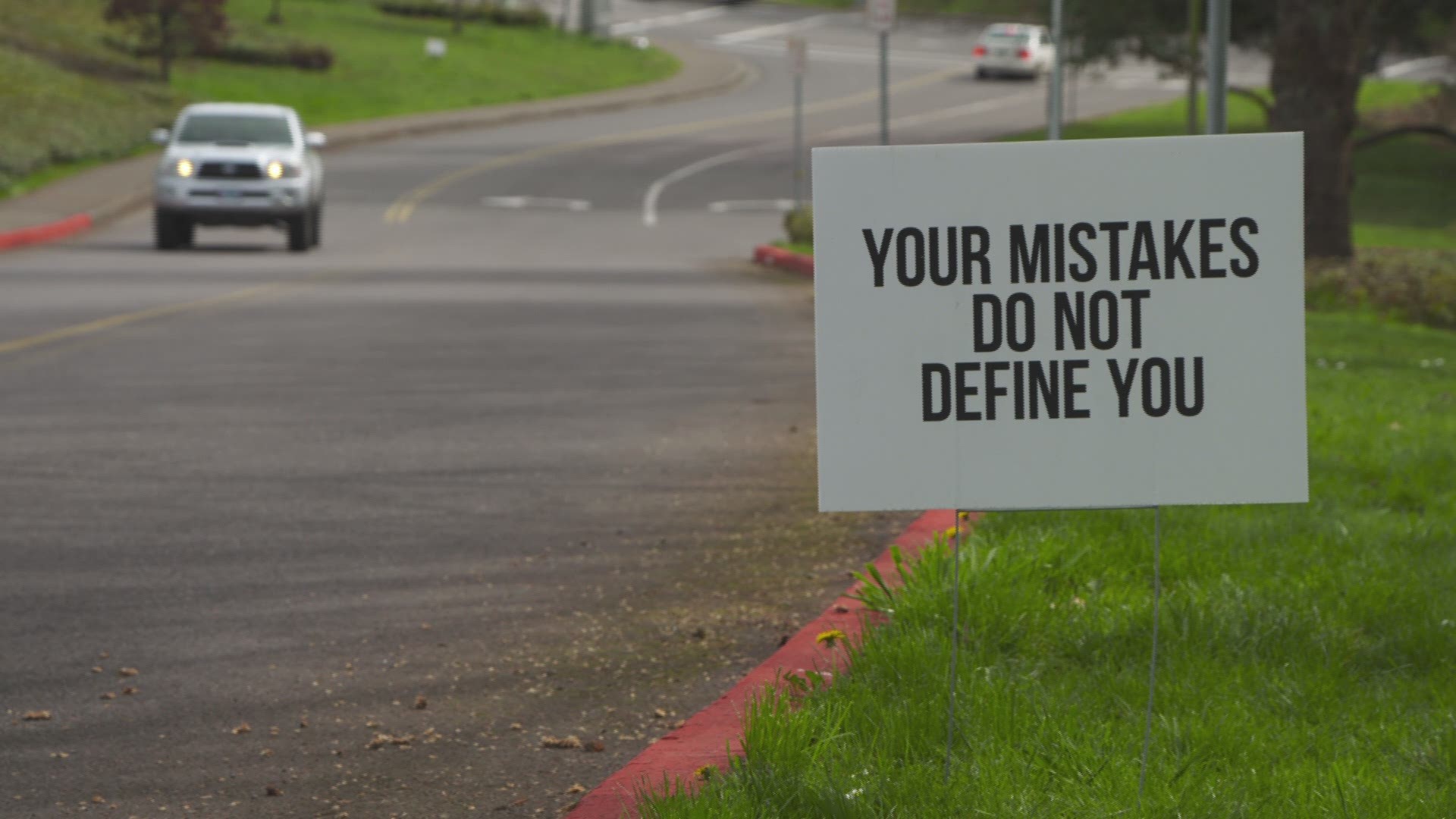Editor’s note: This month, newsrooms across the state are highlighting the public health crisis of death by suicide. Our goal of “Breaking the Silence” is to not only put a spotlight on a problem that claimed the lives of more than 800 Oregonians last year, but also examine research into how prevention can and does work and offer our readers, listeners and viewers resources to help if they – or those they know – are in crisis.
Most of our work will be published and broadcast April 7-14. The participating media outlets are using a common set of data and have loosely coordinated their coverage in an effort to avoid duplication and better amplify all of our work. When possible, we will promote each other’s stories, but all of them can be found on breakingthesilenceor.com
SALEM, Ore.—The entrance to Sprague High School in Salem is lined with yard signs reading “Don’t Give Up” and “You Matter.”
The messages of encouragement sprouted from tragedy after the loss of three Sprague students who died by suicide last year. Now two of their families are sharing their stories, offering advice for parents and the community to help prevent suicide.
“I think the stigma around suicide has got to change,” said Carol McMann.
Her son, Ben McMann, is remembered as a bright and popular kid who could light up a room with his smile. He was a history buff who loved to cook. He was passionate about football.


“He was happy. He didn’t lead on to any anxiety or depression or anything that we’d have said ‘let’s intervene,’” said Kyle McMann, Ben’s father.
Ben died of suicide on September 16, 2018. He was 14 years old.
17 days later, another Sprague student took his own life. Aaron Brown was a junior.
“I think it just knocked people for a loop,” said Dr. David Brown, Aaron’s father and longtime choir director at Sprague.
Aaron was a good kid. He became an Eagle Scout and had a lot of friends.
“He didn’t put on a show and didn’t feel it was necessary to be somebody he wasn’t,” said Dr. Brown. “He was very genuine.”


Dr. Brown said the loss of his son proves anyone is vulnerable to suicide.
“He had two supportive parents, had a good home life, was doing well in school,” said Dr. Brown. “If a kid like Aaron could get to that point, anybody can.”
The McManns and Dr. Brown agree an important first step to address this crisis is to talk about it.
The issue of suicide is especially acute among young people. Suicide was the second leading cause of death among Oregonians age 10 to 34 in 2017, according to the Oregon Health Authority.
That same year, 18 percent of eleventh graders reported seriously considering suicide in the previous year and 6.8 percent reported having attempted suicide one or more times, according to the OHA.
Parents need to have an open discussion with their children about how they’re feeling, even if they’re not showing obvious signs of depression of suicidal thoughts.
“We have to learn to start asking questions in different ways, open-ended questions instead of closed-ended questions,” explained Dr. Brown. “Tell me about your English class? Then, let them talk.”
Both parents suggest you remind your kids, it will be OK. They’ll get past the pressures of high school, even though the stress may feel insurmountable.
Principal Craig Swanson helped guide Sprague students and staff through tragedy with messages of hope and inspiration.
“We’ve got to keep talking about this because it is an epidemic,” said Swanson.
Swanson believes counseling and suicide prevention programs can help save lives. Swanson said there are countless untold stories of students who got help by speaking up.
“To see them successful and happy in life is a great source of pride,” said Swanson.
The parents of Aaron and Ben believe everyone has a role to play in preventing suicide. Family, friends, coaches, teammates and neighbors should be looking for changes in mood and behavior, then ask about it.
“It’s everybody looking out because you never know who that person is who they’re going to open up to,” said Kyle McMann.
RELATED:
The National Suicide Prevention Lifeline can be reached at 800-273-8255. The Crisis Text Line provides free, 24/7 crisis support by text. Text 741741 to be connected to a trained counselor.
Help is available for community members struggling from a mental health crisis or suicidal thoughts. Suicide is preventable.
The Multnomah County Mental Health Call Center is available 24 hours a day at 503-988-4888.
If you or someone you know needs help with suicidal thoughts or is otherwise in an immediate mental health crisis, please visit Cascadia or call 503-963-2575. Cascadia Behavioral Healthcare has an urgent walk-in clinic, open from 7 a.m. to 10:30 p.m., 7 days a week. Payment is not necessary.
Information about the Portland Police Bureau's Behavioral Health Unit (BHU) and additional resources can be found by visiting http://portlandoregon.gov/police/bhu

